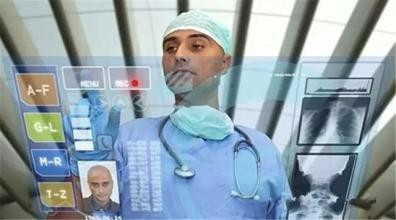Look at how big data can curb non-compliance

Why does Ping An introduce a “healthy medical record�
Ping An is building a strategic blueprint for the unification of medical insurance and medical services. Just half a month ago, the “Ping An Good Doctorâ€, which focuses on online health consultation and management, just completed the A round of financing, with a valuation of US$3 billion. Since last year, it has begun to actively build offline clinics. The launch of the “Personal Medical Record†is a puzzle for Ping An to add a piece of medical big data after the insurance, medical and health management business.
Under the current medical system, the information systems of the hospitals are not connected to each other, and the patient's data is kept in an isolated system. The lack of a unified file is inconvenient for medical insurance and health management. First, when an insurance company deals with insurance or claims, it needs to investigate the health status of the policyholder. Fragmented health data can significantly increase survey costs. Secondly, when doctors answer questions about health consultation online, they can only give advice that is not painful because they don't know anything about their previous health information. Let the online consultation always stay at a very "light" level.
Therefore, it is not difficult to imagine that Ping An’s “heard medical recordâ€, the biggest motivation should still be to serve the medical insurance and health management business.
Will this be a real killer?
"Personal medical records" directly cut into the field of medical big data, has a lot of imagination, but before becoming a real big killer, you must also overcome the following two difficulties:
1) Data collection channels. According to official news, the main channel for obtaining “user medical data†is through cooperative hospitals. However, getting through the hospital system is a very difficult thing. Even after the implementation of the “Resident Health Card†project by the Health Planning Commission, the effect was still poor. If you can't get through most hospitals, the plan to build a unified unified health record will become a bubble;
2) User trust. Although the “heritage medical record†claims to help users manage medical health records, the security insurance behind them is bound to look at these files. Ordinary users will really open their hearts and transparently disclose their health information to insurance institutions?
Domestic and international case analysis
Caresync (USA) is a successful case in the field of personal health data management and application. Founded in 2011, the company's core business is to help users obtain medical records from different hospitals and clinics, and to establish a unified medical history, medical treatment and medication files. Users can also share their files with doctors through Caresync, allowing doctors to better understand their past information and develop personalized treatment plans. Currently, Caresync serves more than 300,000 health insurance users and has established partnerships with more than 100 medical services.
In China, the non-profit organization "OMAHA Alliance", which was established in May 2015, is also working to promote the opening of personal medical health data and promote data integration and sharing. Five teams have been set up to explore collaboration and open source work on relevant information standards.
Some startups are also making active attempts. At the beginning of 2016, the “Must Health†APP, on the one hand, provides medical health data management tools for C-end users. On the other hand, it also provides an interface for doctors, health management and other institutional clients to help them manage their health records.
Conclusion
Although it is still too early to predict whether the “healthy medical record†will become a new killer of the Ping An Department, the fragmentation of medical health data is indeed a serious drawback of the current medical system. Establishing a unified personal profile, allowing patients to master their own data, is conducive to improving patient participation and establishing a patient-centered medical system. If the latter can be effectively combined with commercial insurance and health management, the value it generates has a lot of imagination.
With the "healthy medical records", "must care for health" and other products aimed at personal medical health data business, the Internet medical field will continue to talk to the online pharmacy, and then welcome a new enthusiasm.
Xos Syrup,Xylo-Oligosaccharides Food,Xos Prebiotic
Shandong Bailong Chuangyuan Bio-tech Co.,Ltd. Qingdao Branch , https://www.sdblcycn.com